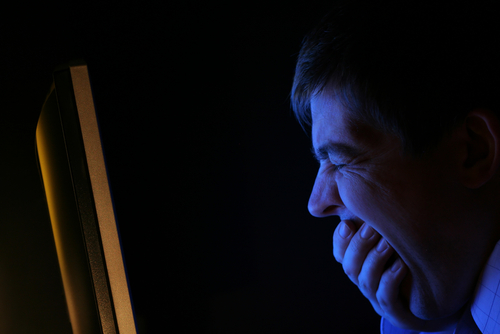Optimizing Sleep Timing for Night Shift Workers

A man yawns in front of a flat-screen computer monitor
Xavier Preud'homme, MD. Dr. Preud’homme has no financial relationships with companies related to this material.
SLEEP DISORDERS
REVIEW OF: Cheng WJ et al, Sleep, 2022;45(4):zsac034
STUDY TYPE: Randomized cross-over design
Learning Objectives
1. Identify the impact of sleep timing on sleep duration and quality in individuals with shift work disorder.
2. Recognize the effects of sleep timing on attention and daytime somnolence in individuals with shift work disorder.
Night shift work is an occupational hazard. One in five shift workers have problems with sleep, attention, and wakefulness that qualify for a diagnosis of shift work disorder. Management of this disorder involves appropriate timing of light and darkness, but no one has looked at the question of when sleep should occur. This study examined that issue by comparing morning sleep (ie, after the night shift) to evening sleep (ie, before the night shift) in people with shift work disorder.
Sixty adults were randomized to a morning (9 AM – 5 PM) or an evening (3 PM – 11 PM) sleep schedule for the first week of the intervention, crossing over to the other schedule for the second week (30 in each arm). The average age was 30 years; 80% were women; and 66% worked as night-shift nurses. The diagnosis of shift work disorder was made with ICSD-3 criteria and confirmed by a 14-day sleep log. Adherence to the protocol was monitored with daily sleep and actigraphy data. No participant used prescribed sleep aids or stimulants during the study period.
The evening sleep protocol resulted in a 30-minute longer duration of sleep (5.3 vs. 4.8 hours) as well as improvements in sleep quality and daytime somnolence throughout the week. Attention also improved, but only on the day after the first shift. The evening protocol was particularly effective for subjects with an evening chronotype (eg, “night owls”).
CARLAT TAKE
Ask your patients who work the night shift whether they sleep before or after their shift. If a later sleep schedule is compatible with their social and family life, start a conversation about the potential benefits of sleeping in the latter part of the day so they wake about an hour before their shift.
Reference
Cheng, W. J., Hang, L. W., Kubo, T., Vanttola, P., & Huang, S. C. (2022). Impact of sleep timing on attention, sleepiness, and sleep quality among real-life night shift workers with shift work disorder: a cross-over clinical trial. Sleep, 45(4), zsac034. https://doi.org/10.1093/sleep/zsac034
Editor’s note: This article appeared in The Carlat Psychotherapy Report under the title “A New Intervention for Shift Work Disorder.”
Newsletters
Please see our Terms and Conditions, Privacy Policy, Subscription Agreement, Use of Cookies, and Hardware/Software Requirements to view our website.
© 2025 Carlat Publishing, LLC and Affiliates, All Rights Reserved.


_-The-Breakthrough-Antipsychotic-That-Could-Change-Everything.jpg?1729528747)



